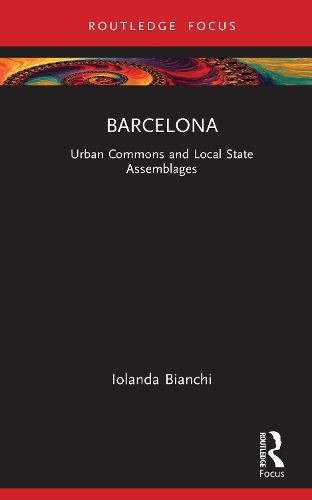Readings Newsletter
Become a Readings Member to make your shopping experience even easier.
Sign in or sign up for free!
You’re not far away from qualifying for FREE standard shipping within Australia
You’ve qualified for FREE standard shipping within Australia
The cart is loading…






This book explores the complex relationship between urban commons - understood as a repertoire of collective action that fosters a politics of antagonism - and the local state. It critiques the dominant neo-institutionalist and neo-Marxist perspectives for their deterministic and siloed views, as well as their insufficient attention to the municipal scale. The book proposes a more nuanced, urban-based, outcome-oriented approach rooted in assemblage theory.
The analysis addresses a central question: can urban commons-local state assemblages benefit the politics of urban commons? The book argues that they can, provided they form rhizomatic assemblages. These allow urban commons to retain their self-governing autonomy, even as they lose some of their material autonomy. Conversely, it shows that assemblages can also take arborescent forms, allowing the local state to undermine the self-governing autonomy of the urban commons.
Focusing on Barcelona, the book examines how rhizomatic and arborescent assemblages are constructed, as well as the strategies that urban commons can undertake to build rhizomatic assemblages. This work is essential for scholars, policy-makers and activists interested in urban governance, commons theory and transformative politics. It provides both theoretical insights and practical tools for harnessing the dynamics of the urban commons and the local state to drive meaningful socio-political change.
$9.00 standard shipping within Australia
FREE standard shipping within Australia for orders over $100.00
Express & International shipping calculated at checkout
This book explores the complex relationship between urban commons - understood as a repertoire of collective action that fosters a politics of antagonism - and the local state. It critiques the dominant neo-institutionalist and neo-Marxist perspectives for their deterministic and siloed views, as well as their insufficient attention to the municipal scale. The book proposes a more nuanced, urban-based, outcome-oriented approach rooted in assemblage theory.
The analysis addresses a central question: can urban commons-local state assemblages benefit the politics of urban commons? The book argues that they can, provided they form rhizomatic assemblages. These allow urban commons to retain their self-governing autonomy, even as they lose some of their material autonomy. Conversely, it shows that assemblages can also take arborescent forms, allowing the local state to undermine the self-governing autonomy of the urban commons.
Focusing on Barcelona, the book examines how rhizomatic and arborescent assemblages are constructed, as well as the strategies that urban commons can undertake to build rhizomatic assemblages. This work is essential for scholars, policy-makers and activists interested in urban governance, commons theory and transformative politics. It provides both theoretical insights and practical tools for harnessing the dynamics of the urban commons and the local state to drive meaningful socio-political change.